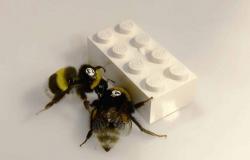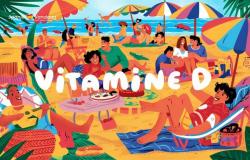‘How can this lack of reflection be reconciled with the deep scars that the pandemic and the fight against it have left on many people?’ asks historian Bert De Munck (UAntwerp). He is surprised by the absence of corona in the run-up to the June 9 elections.
We are facing the first elections since the most drastic crisis in recent decades, namely the Covid-19 pandemic. Remarkably, the way the pandemic was handled is not an issue in any way. It is not debated during the campaign, and it has had no impact on the programs of political parties. That is symptomatic of a much deeper political and social problem and can teach us something about the reasons why people ‘drop out’.
While we are talking about the return of Conner Rousseau and the stakes of the elections are neatly summarized for us in voting tests with simplistic yes-no questions, negotiations are taking place elsewhere in the world about how future pandemics will be detected and tackled. In December 2021, the World Health Organization (WHO) established the so-called ‘Intergovernmental Negotiating Body’ (INB), with the task of drawing up a convention or treaty that will serve as a guideline in the prevention, detection and response of pandemics. This ‘pandemic treaty’ will be submitted to the Member States for approval this year.
The already heavily negotiated draft text is based on commendable principles, such as equality and solidarity between countries, including with a view to faster information sharing and avoiding ‘vaccine nationalism’. However, the treaty will also include commitments for the Member States with direct consequences for local investments in detection systems and research into pathogens with ‘pandemic potential’. It will also encourage the further development of protocols, institutions and regulations that should prepare us and encourage us to act. In other words, this is about fundamental political issues with the potential to have a huge impact on our daily lives in the near future. These are decisions that will strongly influence local choices, regardless of who will be elected in our country.
However, few are aware of this, and there is certainly no critical reflection and debate. It illustrates how far we have come into a global technocracy, and how problematic that is from a democratic point of view. Who knows who represents Belgium in the INB, let alone what positions our country defends there? Who realizes what the potential long-term consequences are? Shouldn’t we ask ourselves what the treaty will mean for the room for maneuver of national governments in the future, or what the impact of the pharmaceutical industry will be on the negotiations?
The provisional text of the treaty explicitly recognizes the sovereignty of member states in imposing measures such as travel restrictions, vaccination requirements and lockdowns, but this does not prevent the ingrained ‘early warning’ logic and the associated commitments with regard to risk detection, virus surveillance and cooperation between Member States, such drastic measures may seem inevitable even sooner than before. This is all the more the case as the International Health Regulations (IHR) of 2005 are also being revised in parallel with these negotiations. It is under these regulations that Covid-19 was declared a ‘Public Health Emergency of International Concern’ on January 30, 2020, so tinkering with these provisions has potentially major consequences for when exactly we will enter a state of emergency.
It seems to me that it is of great political importance to know what will change in the definition of a state of emergency, in the systems for detecting threats and in the agreements and protocols for communicating about them and taking action. However, there is a good chance that the parliamentarians who will soon have to approve this treaty will see it as a technical instrument and will ratify it without much ado – or simply follow the party line – as happened during the pandemic itself.
How can this lack of reflection be reconciled with the deep marks that the pandemic and the fight against it have left on many people? On the one hand, many have lost a loved one in 2020 and 2021 and the negotiations around the treaty and the revision of IHL have the legitimate aim of doing better in that area in the future. Many others, however, struggle with trauma, because they were unable to say goodbye to a loved one, because their child fell into depression, or because they were shocked by the ease with which crucial mental and social needs were ignored and basic rights suspended. To date, much less attention has been paid to these side effects and that is because it is still assumed that there was no alternative, that ‘the figures’ left us no choice. In my opinion, it is now clear that not only has a lot of unnecessary damage been caused, but also that a different policy was indeed possible, just think of the Swedish approach.
But won’t it be precisely the technocratic TINA logics that were imposed in spring 2020 that will be strengthened? And without a rooster crowing at it.
We accept fatalistically the views of political philosophers Michael Hardt and Antonio Negri Empire have mentioned, an opaque but compelling global tangle of governance mechanisms over which experts and lobby groups have increasingly greater control and in which elections matter less and less.
Anyone who thinks that the mistakes of 2020-21 cannot be repeated is sorely mistaken. More than ever before, we are socially and politically concerned with avoiding risks. According to political scientist Patrick Zilberman, since the end of the twentieth century, not only has public health turned into ‘global health’, but policymaking has also increasingly been based on ‘worst case scenarios‘. Principles of prevention and strategic policy making based on historical experiences and knowledge have been replaced by scenarios about possible emergencies and through plans aimed at the worst – captured by the WHO as preparedness.
As a society, we are, as it were, in a permanent stress situation, always alert and prepared for the next catastrophe. What 2020-22 has also taught us is that people who did not buy into the fear and modern belief that humans can tame nature through global political and technological levers were left no choice. Parents who wanted to send their children to school and protect them from social isolation were faced with a fait accompli. Even elderly people who preferred risk of infection to isolation were turned away. After all, many people in residential care centers could not choose to continue seeing their grandchildren.
Elections then seem to be the ideal time to give these people the opportunity to have a voice. But where can they go? Which party even has a position on this? Which Member of Parliament follows critically what is happening at WHO level? Who is even looking for an alternative to the neoliberal Empire logics?
In theory, left and green parties should do this, the left because of the historical sensitivity to oppression and the rights of people without a voice, ecologists because of their criticism of the idea that we can bend nature to our will with science and technology. Within the green left, there is also a political tradition of resistance from below, with groups that organize themselves locally and attach great importance to self-government, as continues today in the commons tradition. But paradoxically, it was precisely these political movements – including internationally – that shouted loudest that there was no alternative to the technocratic and top-down measures. They also went the furthest in stigmatizing and diabolizing critics.
Progressive parties in particular reduced critics with astonishing ease and from a completely misplaced moral superiority mindset to ‘dropouts’ who should not be taken into account. Without realizing it, they placed themselves in a long tradition in which intellectuals and elites look down on people without a voice. In the nineteenth century, not only immunology and vaccinology developed, but also the ‘biopolitical’ mechanisms that ensured that policy was guided by statistical data on health and life expectancy and to which alternative ideas about health and quality of life were subordinated. It is also the period in which experts literally reached into the living room and started prescribing – especially to lower social groups – exactly how they should lead a healthy life. Nineteenth-century hygienists and physicians are also behind the stigmatization of people who oppose biopolitical policies.
The lesson I draw is that there is a great need for a political movement that combines sensitivity to social and ecological issues with a critical attitude towards an expert-driven and increasingly global technocracy. Many critics of the pandemic policy are actively looking for a new way of living together, both with fellow humans and with nature. Not only do they oppose the biopolitical focus on numbers in the health sector, but they also worry about the mental and social impoverishment of life due to ongoing technological pressures and numerical approaches in education and business.
They look for ways to disconnect and for solutions that they have control over. Where can they go with their vote? Who advocates solidarity, but at the same time cherishes individual autonomy and local self-determination?
With few exceptions, all political actors have failed miserably in the collective rule of law stress test that was the pandemic. The underlying drama, however, is that there seems to be no alternative to more of the same in response to modern global challenges. It is to be feared that the number of dropouts will only continue to grow as a result.
Bert De Munck is professor of history at the University of Antwerp. His book ‘Live and let live. A critical history of the pandemic (Ertsberg).






